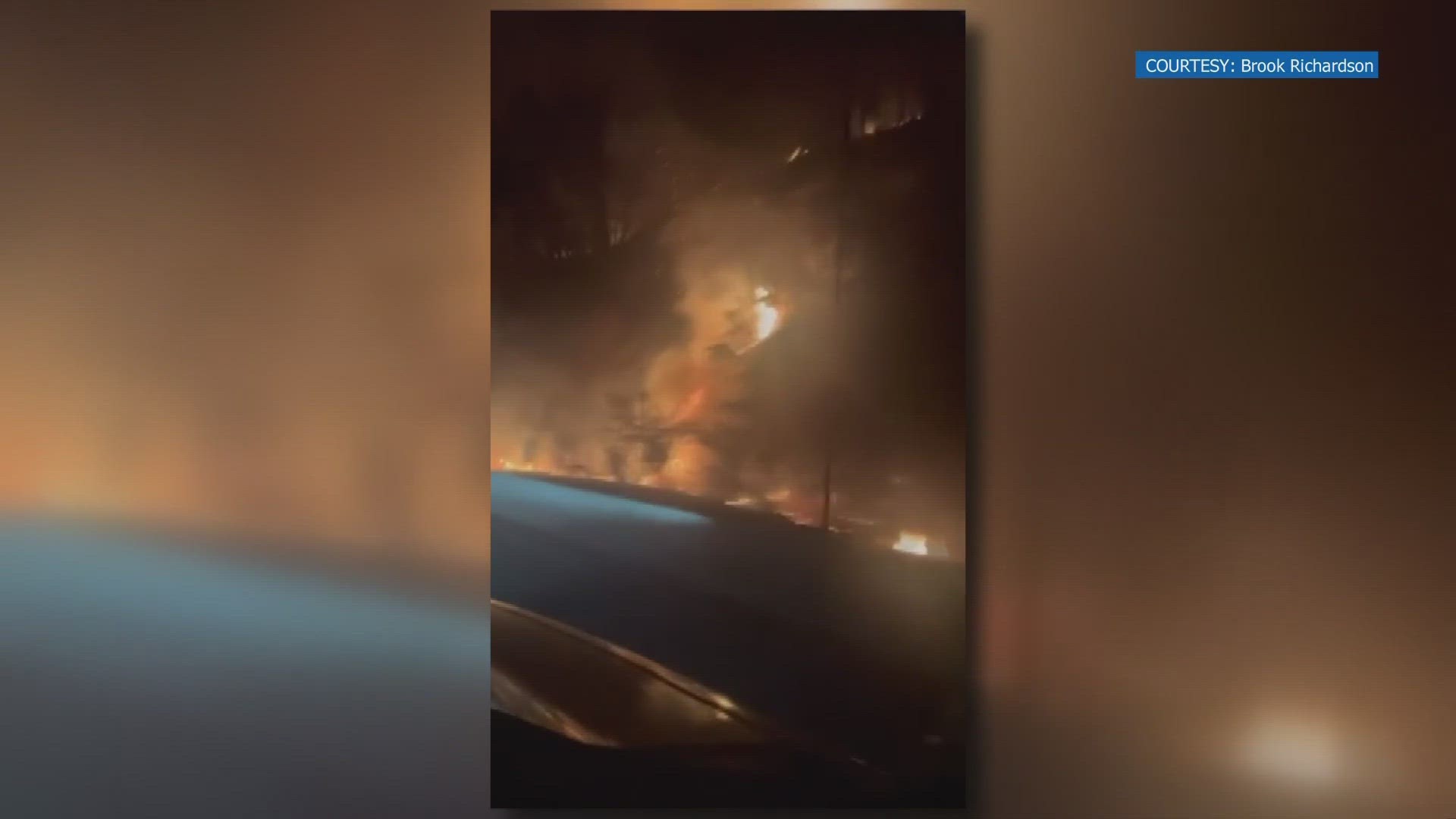COCKE COUNTY, Tenn. — A large wildfire continues to hold steady with minimal activity as crews work to fully contain it along Interstate 40 in North Carolina near Cocke County, Tennessee.
The Black Bear Fire was sparked by a car crash on I-40, according to the Cocke County Emergency Management Agency.
If you've driven through the Pigeon River Gorge section of I-40 between Cocke County and Asheville, you can't miss the fire. It has been visibly burning on the mountain along the interstate since starting last week.
The wildfire has been burning in Haywood County, North Carolina in the Harmon Den Wildlife Management Area near Mile Marker 3 on I-40, which is 3 miles from Cocke County and the Tennessee state line.
The U.S. Forest Service's North Carolina division, National Forests in North Carolina, said the fire had grown to around 1,888 acres as of Wednesday, slowly burning in steep terrain that made it tough to contain initially.
Crews said Wednesday the fire was 79% contained.
Foresters said there hasn't been a lot of fire activity over the past few days because the surface fuels weren't enough to help the fire spread.
In its final update Tuesday, the Southern Area Incident Management Team Blue Team said 195 people were actively assigned to contain the fire. National Forests of North Carolina will assume command of the fire response starting Wednesday.
North Carolina fire officials said the good news was that the fire did not grow much between Monday and Tuesday despite the strong winds whipping through the mountains. Crews said containment lines held strong and weren't tested.
Still, drivers heading down I-40 had reason to be concerned seeing the mountains burning right next to them. Brook Richardson shared the video below taken on Monday night:
Forestry crews said winds on Tuesday will continue to fuel fire behaviors. Crews are hoping rain will help douse the dry ground to slow the fire's spread and keep fire activity to a minimum.
Last week, fire crews were using air tankers and helicopters to contain the fire, along with a 20-person crew and dozers to dig a containment line and clear brush.
"Aircraft are conducting retardant and water drops to slow the fire progression. Fire activity is very active, moving up a ridge through dry fuels," a release said.
A part of the Appalachian Trail was closed because of the fire — from I-40 to Max Patch. Cold Springs Road and Brown Gap Road were also closed, and firefighters said people could expect to see smoke while driving on I-40 near the fire.
NCDOT said drivers should continue to expect delays when driving on I-40 West between Asheville and Tennessee due to smoke from the fire lowering visibility. It said people driving along this stretch of I-40 should consider taking the long way around on I-26 West through Johnson City because of fire and road construction delays.
"The fire may continue for several days. Drivers should use I-26 and I-81 between Asheville and Tennessee to avoid the area affected by the work zone and the fire," NCDOT said.
The fire marked one of several that burned in East Tennessee and Western North Carolina and beyond over the past few days. The entire region has a high fire danger due to extremely dry conditions and breezy winds that can turn underbrush, like leaves or pines, into fuel for wildfires. Burn restrictions are in place in every East Tennessee county.
"Carelessness is probably the biggest cause of outdoor fires right now, and not adhering to the warnings that officials put out there," said Jeff Bagwell, a spokesperson for Rural Metro in Knox County.

